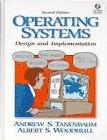
The Operating Systems course covers introductory operating system
design and implementation. We will cover basic and important OS concepts,
including structure, concurrency, synchronization, memory, file systems, I/O
and security, with more advanced topics interspersed as time permits. Our focus
will be on techniques and abstractions with broad applicability, although we
will also refer to case studies where appropriate. The goal of this course is
to expose students to principles of good system design and to help students
gain experience with systems development.
Instructors
Schedule
| Dates: |
May 21st - July 2nd |
| Time: |
MTWRF, 10h00 - 11h15 |
| Location: |
Hollister 401 |
Text
The course text, "Operating System Concepts" is one of the
traditional books used for this kind of material. You will be expected to read
corresponding chapters as we progress through the material. We will also assign
problems from the book. Copies have been placed on reserve in the library, but
we recommend that you buy your own copy as well.

|
| Title: |
Operating System Concepts |
| Author: |
Abraham Silberschatz, Peter Baer Galvin and Greg Gagne |
| Publisher: |
John Wiley & Sons |
| WWW: |
Supplement
Silberchatz
Galvin
Gagne
|
|
Two other recommended books, which have also been placed on reserved at the
library are "Operating Systems: Design and Implementation" and "The
C Programming Language".

|
| Title: |
Operating Systems: Design and Implementation |
| Author: |
Andrew S. Tanenbaum and Albert S. Woodhull |
| Publisher: |
Prentice Hall |
| WWW: |
Supplement
Tanenbaum
Woodhull
|
|
Prerequisites
The course is open to any student who has mastered the material in CS314
(Computer Architecture) and has had some exposure to data structures and
programming languages (e.g., C, C++, Java or Pascal), which can be obtained
through CS211, CS212, or CS312. If you have questions concerning your
preparedness, please consult the instructor.
Policy
Lateness: All submissions are due at the beginning of class.
Due to time constraints of the course, no late submissions will be
accepted unless pre-arranged with an instructor. Any work not submitted on
time will receive a zero grade.
Submission: Unless specifically stated otherwise, all assignments,
homeworks and prelims will be submitted in hard-copy. Please staple all pages
together with a cover sheet clearly indicating your name, netid and student
number.
Academic integrity: The university code of academic integrity shall
be maintained at all times. All submitted work must be solely of your own (or
your group's, in the case of assignments), unaided effort. Violations of the
code and unethical behaviour will be dealt with severly.
Help: You are welcome, and encouraged, to ask questions and
seek help when you feel confused, or want to know more. Please make use of
office hours.
Regrade: If you feel an error has been made in the grading of your
work, you may request a regrade. Resubmit, within one week, the assignment or
homework or prelim with a note attached explaining where you believe an error
was made. Note that the entire submission will be regraded.
Grading
The final grades for the course will be computed as follows:
| Homeworks (5) |
|
20% |
| Assignments (3) |
|
30% |
| Midterm |
|
20% |
| Final |
|
30% |




